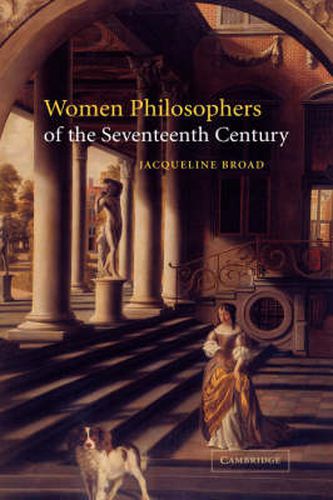Readings Newsletter
Become a Readings Member to make your shopping experience even easier.
Sign in or sign up for free!
You’re not far away from qualifying for FREE standard shipping within Australia
You’ve qualified for FREE standard shipping within Australia
The cart is loading…






In this rich and detailed study of early modern women’s thought, Jacqueline Broad explores the complexity of women’s responses to Cartesian philosophy and its intellectual legacy in England and Europe. She examines the work of thinkers such as Mary Astell, Elisabeth of Bohemia, Margaret Cavendish, Anne Conway and Damaris Masham, who were active participants in the intellectual life of their time and were also the respected colleagues of philosophers such as Descartes, Leibniz and Locke. She also illuminates the continuities between early modern women’s thought and the anti-dualism of more recent feminist thinkers. The result is a more gender-balanced account of early modern thought than has hitherto been available. Broad’s clear and accessible exploration of this still-unfamiliar area will have a strong appeal to both students and scholars in the history of philosophy, women’s studies and the history of ideas.
$9.00 standard shipping within Australia
FREE standard shipping within Australia for orders over $100.00
Express & International shipping calculated at checkout
In this rich and detailed study of early modern women’s thought, Jacqueline Broad explores the complexity of women’s responses to Cartesian philosophy and its intellectual legacy in England and Europe. She examines the work of thinkers such as Mary Astell, Elisabeth of Bohemia, Margaret Cavendish, Anne Conway and Damaris Masham, who were active participants in the intellectual life of their time and were also the respected colleagues of philosophers such as Descartes, Leibniz and Locke. She also illuminates the continuities between early modern women’s thought and the anti-dualism of more recent feminist thinkers. The result is a more gender-balanced account of early modern thought than has hitherto been available. Broad’s clear and accessible exploration of this still-unfamiliar area will have a strong appeal to both students and scholars in the history of philosophy, women’s studies and the history of ideas.